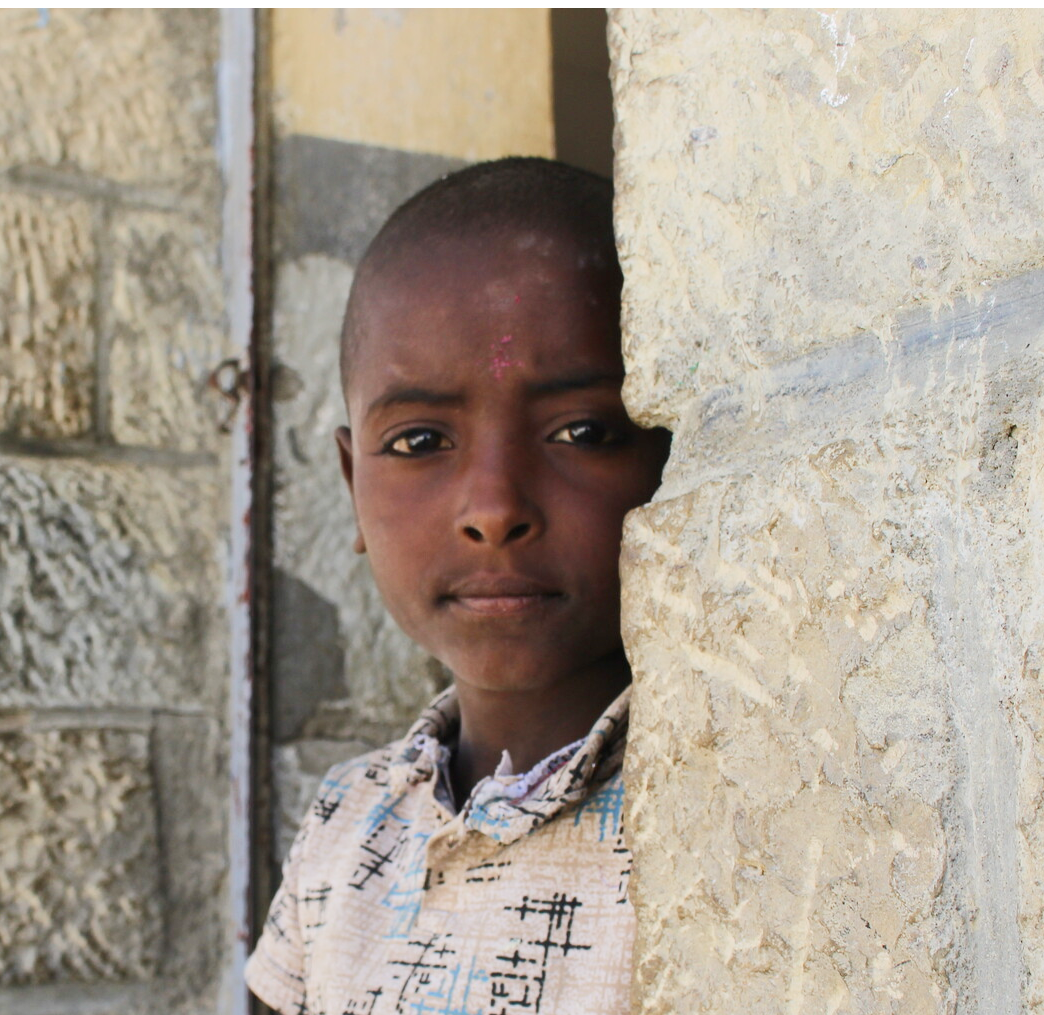
Voices from Tigray: Carrying the weight of the world
Once a top-A student, Meargu is consumed by anxiety and stress as a result of the deadly conflict that robbed him of his father and brought chaos to his young life.
You only need to look around his classroom to get a sense of some of the struggles Meargu faces at school. Glass from broken windows and crumbled bricks scatter the ground. Even the blackboards show signs of the brutal conflict that ravaged this community and the wider Tigray region for two years. The once proud building (constructed by locals several years ago) is a testament to the community’s belief in the learning that used to take place there. The structure is now in desperate need of a rebuild after a shell exploded nearby.
Meargu’s teacher speaks quietly as she explains the personal loss the war has heaped on him. “His father disappeared during the conflict, they suspect he is dead. Now Meargu is living with his grandmother, but she told him, ‘I can’t feed you. You have to work and you have to also support me.’ He is in a very desperate condition.
“He was one of the top students, but now his performance is decreasing. He is not attending school regularly. He was a disciplined and well-mannered boy, but now he is fearful."
The trauma of this war is etched on Meargu’s face, and he suffers from stress and anxiety. He’s still a child but feels that he must stay strong to carry out important responsibilities, such as looking after the animals they have or fetching water from the nearby well. Like the rest of his community, he’s also suffering acute hunger, caused by years of devastating war and drought. Meargu used to dream of being a writer, but right now he lacks the essential conditions to learn and often misses classes.
He's not alone; the war and its aftermath has led to as many as 300 pupils no longer attending Ara Primary School. The school numbers have reduced so much that there is now only one teaching shift, in the morning, and the afternoon session has been cancelled indefinitely.
Many children have left to look after cattle or work as housemaids because, as the principal has noted: “rather than dying of hunger, they chose to be a servant instead.” Others can’t attend because they’re simply too hungry to make the journey, or don’t have enough energy to follow the lessons.
That’s often the case for Meargu too. “[I face] social and psychological problems. I can’t go to school because I don’t have enough food, or clothing or school materials like exercise books and pencils.”

Regular attendance at school is key for Meargu to navigate life after the conflict and start building a more stable future. But the opportunity to do this is fading quickly. He is 17 years old but has not been able to complete his education because of the many years the school lay closed – first as a result of the global pandemic and then because of the conflict raging in the region.
School meals aren’t currently being served at Ara Primary School. It’s a school Mary’s Meals wants to reach, but, for today, Meargu and his friends are still waiting.
When asked what a school feeding programme might mean for him, Meargu – who has heard about children receiving Mary’s Meals in other schools – answers clearly: “If I could get all the proper support, I would go to school, I wouldn’t have a lack of food, and I would study well. I would enjoy my classmates and my psychological and social problems would be addressed.”
Meargu isn’t the only one who hopes his school’s empty kitchen might one day be filled with steaming cooking pots and plates full of much-needed food for every student. In the few hours that Mary’s Meals representatives spent at his school, 15 children came with their families to enrol. It’s a taste of what we know is possible if we can start serving daily meals to the children of this community.
Please give what you can to help to fund school meals for Meargu and his classmates at Ara Primary School, to ease their hunger and give them a chance to learn with joy once more

